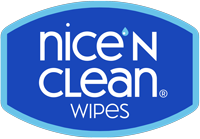4 Reasons to Shop Sustainably

Sustainable shopping reflects the recognition that everything we purchase has an impact on our health, our environment, and our society. When you shop sustainably, you’re using your purchasing power to support companies that align with your beliefs. This also means you avoid buying services and products from businesses and individuals that don’t align with your beliefs.
What is sustainable shopping?
In order to do so effectively, it’s important to do research on the products you buy. From an environmental standpoint, it’s not enough to only look at the product itself. It’s also important to look into the raw materials that are used, how they’re sourced, how the product is manufactured, how it’s packaged, and how it’s disposed of. Looking at the entire product lifecycle provides a more holistic picture of how sustainable a product is.
Here are 4 reasons to consider shopping sustainably.
Reason #1: Protecting the environment
When you purchase sustainably made food and products, you’re supporting the environment. That’s because sustainably made foods use less pesticides. Chemical pesticides can be harmful to the environment and to people’s health. Sustainably made products use less water and energy. They also use sustainably sourced raw materials, which minimizes pollution. Using natural materials, such as renewable plant-fibers for making wet wipes, have little to no impact on the planet.
An example of a sustainable brand is Nice ’N CLEAN® Wipes, which manufactures wet wipes that are made with renewable plant-based fibers from trees in environmentally managed forests.
Reason #2: Protecting your health
As mentioned above, sustainably produced foods are better for our personal health because they use less pesticides and chemicals during the farming and production process. These chemicals are not only harmful to our bodies after we ingest the foods, they’re also harmful to the environment because the chemicals can get into our water system.
Reason #3: Protecting workers
Sustainable companies understand the importance of treating their employees well. This means fair wages and safe working conditions during every stage of the product life cycle. From sourcing raw materials to operating manufacturing facilities to distributing products to retailers, employees for sustainable companies are compensated fairly, treated respectfully, and work in safe conditions.
Reason #4: Protecting animals
Sustainable shoppers keep animal welfare top of mind. Sustainably produced meat products are from animals that are fed higher quality foods without chemicals, additives, and preservatives, that have more space to live and grow, and that are treated humanely throughout their lives, including the slaughtering process. Sustainable products are never tested on animals. Sustainable companies will review all of their individual ingredients to make sure they’re not tested on animals either.
To support our planet’s health, changes must be made by companies and by individuals. Companies must focus on making eco-friendly changes at every stage of their product lifecycle, while individuals must focus on lifestyle changes that incorporate thoughtful decisions on what we buy and consume. Global issues such as pollution and global warming are the result of human activity.
That’s why the Nice ’N CLEAN® brand is partnering with American Forests and Project Learning Tree, the Sustainable Forestry Initiative’s flagship education program. As a sustainable brand owned by Nice-Pak, we are committed to driving awareness and supporting educational efforts to improve knowledge and appreciation for the critical role trees play in protecting the planet for our future generations. Our efforts include working with American Forests to plant 150,000 trees across the U.S. over three years and supporting Project Learning Tree’s digital curriculum that will reach 25,000 K-12 students over the next three years. Furthermore, we are increasing the amount of certified cellulosic fibers in our wet wipe products with the goal of using 100% certified fiber by the end of 2022.
All of these efforts complement our three strategic pillars of advancing health and well-being, environmental sustainability, and educating and supporting communities.
References:




